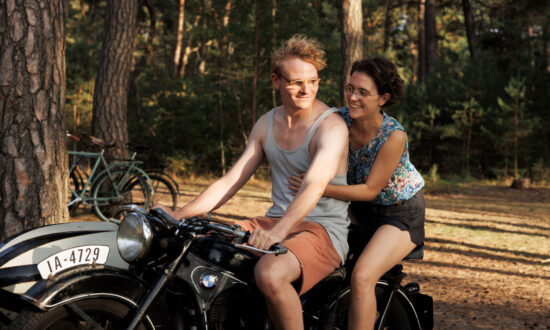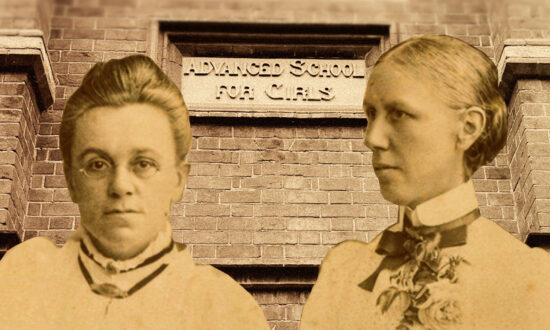“A song can penetrate every environment,” says Nancy Bates, a Barkindji woman and singer-songwriter.
For more than 10 years, Bates has been working with people in the prison system – teaching music skills. The work is one part of a storied career that has taken her on national and international tours playing with Archie Roach, and onto stages as a stand-up comedian.
But for Bates, working in prisons far outstrips every other experience.
“When you take creative processes into dark spaces, there’s this light – it’s a kind of light you don’t get on the outside,” she says.
“I still don’t quite understand it, except to say that when you write a song in a prison system, you create such freedom of the heart and mind… that the physical walls, the barbed wire, the institution – the infrastructure of everything around you that imprisons you – becomes irrelevant, and also almost non-existent.”
Next year, Bates will run her most significant in-prison program yet. She’s planning to hold six months of workshops in the Adelaide Women’s Prison, writing songs and teaching singing and the ukulele with a group of 10 prisoners. The program – Song Birds Music and Song Workshops with Nancy Bates – will culminate in a full-scale performance, with the ensemble playing their music alongside the Adelaide Symphony Orchestra.
Bates is creating the program in partnership with documentary filmmaker Shalom Almond, who will chronicle the entire process – including following key participants as they are released from prison – for her next film, Songs Inside.

Nancy Bates has been working with women in the prison system for more than a decade. Photo: Kelly Champion
The documentary will continue Almond’s exploration of issues around women’s incarceration, which she began in her 2017 documentary Prisoners and Pups.
“The experience of making that film was so inspiring and so incredible, but the terrifying part was seeing those women’s lives when I continued the relationship with them once they got out,” she says.
“I always thought that with that film, I just scratched the surface of what I wanted to do in terms of giving those women their voice.”
Deeply affected by the issues she saw women facing upon release – from domestic violence, to lack of disability, drug and alcohol services, and acute housing stress – Almond was excited to meet a like-mind in Bates.
After running and documenting a pilot music program that lasted about a month, the pair took their proposal for the six-month program and full-length documentary to the Department for Correctional Services.
“They are incredibly supportive,” says Bates. “It’s about internal change – over time, the impact of the work that Shalom and I have done is being valued… This stuff could not happen without the support of Corrections.”

Shalom Almond on the set of her previous film, Prisoners and Pups.
While Bates has long understood the power of music in prisons, she sees the addition of Almond’s camera and the reach that comes with good storytelling as game-changing.
“I’ve experienced the same things that those women have experienced,” says Bates. “And I realised that this could be me.
“These women are human. These women are us. There’s no separation. We need to take responsibility… as citizens of this country, for these prison systems.
“People don’t know what’s going on – they don’t know about the experience of women, they don’t know how the system holds on to women once women become incarcerated, they don’t understand the journey that women are on that leads them into a prison system, which is largely clouded in trauma and violence.”
Songs Inside will connect audiences emotionally with the experiences of prisoners – creating a framework for probing the cultural forces and norms that have led to women becoming the fastest-growing prison population in Australia.
Almond’s approach to filmmaking is built around creating these connections respectfully. For the vast majority of her production process, she films alone – foregoing a crew in favour of creating intimate relationships with participants, which in turn encourages openness and trust.
“My priority is always the relationship with the participants,” she says. “At the end of the day, it’s just a film, but it’s their lives and they’re the ones that have to live with it being out in the public sphere and the repercussions that come from that. I always just put the relationship and that person’s best interest ahead of the film.”

Participants in the music and song workshops.
With filming slated to begin in April 2023, the project is currently seeking philanthropic and public support through Documentary Australia – a platform specifically designed to raise funds for films with social impact potential.
As part of the production, Almond will create an accompanying social impact campaign, which will find ways to amplify the film’s message. She is currently organising a focus group of experts on women’s incarceration to consult on the process.

Get InReview in your inbox – free each Saturday. Local arts and culture – covered.
Thanks for signing up to the InReview newsletter.
While much of the work remains ahead for Bates and Almond, the project has the potential to ripple widely. As well as sparking new thinking for audiences, it will equally touch the lives of women in prison.
As Tabitha Lean – a former participant in one of Bates’ programs – wrote in a review for Mindshare, the transformative power is in bringing together those on the inside and those on the outside.
“Nancy takes that beauty into prisons,” Lean writes, “and even more powerfully, she holds the beauty of the women inside and shares it with the outside.”
Details of the fundraising campaign for Songs Inside can be found here on the Documentary Australia website.
Support local arts journalism
Your support will help us continue the important work of InReview in publishing free professional journalism that celebrates, interrogates and amplifies arts and culture in South Australia.
Donate Here




